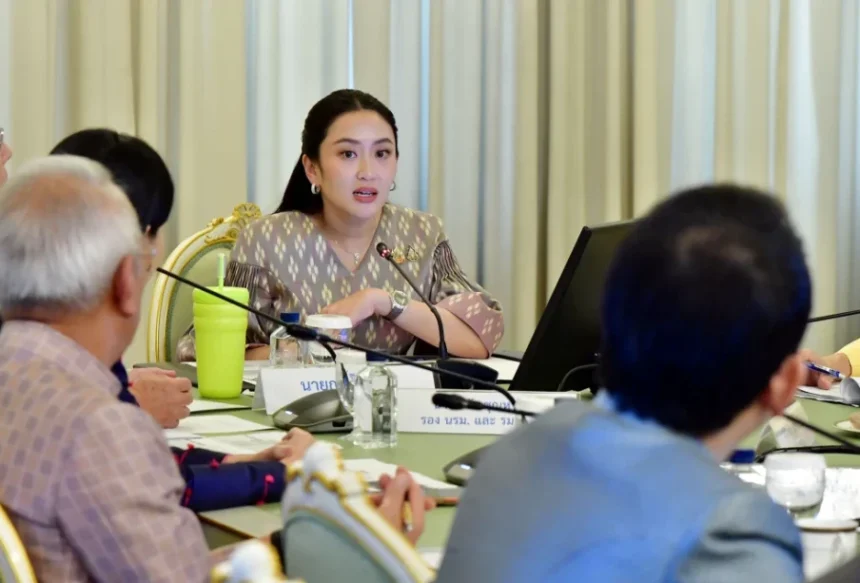BANGKOK — Deputy Prime Minister and Finance Minister Pichai Chunhavajira has shared Thailand’s plan for addressing U.S. trade and tariff issues ahead of his trip to the United States. The approach focuses on increasing exports to the U.S. while boosting imports of American products.
After a meeting on April 11 with Thailand’s committee addressing U.S. tariff policies, Pichai announced that discussions covered specific products and involved input from various industry groups. These insights will guide the country’s negotiation strategies.
“We aim to travel to the U.S. for talks as soon as possible,” Pichai said. “The Office of the United States Trade Representative (USTR) has already agreed to meet us, but a date hasn’t been finalized yet.”
He also mentioned plans to travel with Commerce Minister Pichai Naripattapan, joking that both ministers share the same first name. Representatives from the private sector will also participate to strengthen Thailand’s position.
Thailand Increasing U.S. Corn Imports
Pichai highlighted the importance of boosting Thailand’s animal feed exports to the U.S., which currently make up just 3% of the market. Doubling that to 6% could significantly benefit the economy, partly through importing more raw materials from the U.S.
Thailand processes 9 million tons of corn annually, but domestic production only meets 4 million tons of this demand. The rest is imported from various countries. Pichai suggested increasing corn imports from the U.S., which could help reduce processing costs for animal feed.
He also pointed out that the Board of Investment (BOI) must adjust its investment plans due to global economic changes. Discussions on importing natural gas from the U.S. or investing in American gas fields are also on the table. However, Pichai stressed that any gas purchases must be cost-effective.
Prime Minister Paetongtarn Shinawatra emphasized the need for careful planning to ensure the negotiations are both effective and accurate. She noted that the process will involve multiple rounds and take time.
“These changes will impact the economy structurally,” the Prime Minister said. “We need short-term solutions for those affected and long-term strategies to support economic growth and market diversification.”
Concerns Over Order Delays
Poj Aramwattananont, Chairman of the Thai Chamber of Commerce, raised concerns about the uncertainty surrounding tariffs. Although President Trump delayed implementation by 90 days, the announcement on April 2 has already affected business activity.
“New orders have slowed down because companies are unsure about pricing,” Poj said. “If this continues, exports could drop significantly in June and July.”
He added that products set for shipment at the current tariff rates must leave Thai ports by May 10.
Poj announced plans to lead a delegation from the Thai Chamber of Commerce along with representatives from the American Chamber of Commerce in Thailand and the Thai government. The group will attend the SelectUSA investment event, which promotes foreign investment in U.S. states.
The delegation will travel from May 9 to 14, followed by a Thailand-U.S. seminar in Thailand from May 19 to 21. The goal is to expand investment opportunities and strengthen economic ties between the two nations.
Thailand’s economy is expected to continue its steady recovery in April 2025, with annual GDP growth predicted to range between 2.5% and 3.3%. This growth is supported by strong consumer spending, a recovering tourism industry, and government initiatives such as the digital wallet program.
Tourism is likely to near pre-COVID levels, with an estimated 39 to 41 million visitors projected for 2025, aided by events like the SEA Games. Export activities, particularly in electronics, are also helping the economy, though challenges like global trade disputes, potential U.S. tariffs, and high household debt (approximately 89% of GDP) could limit progress.
Inflation is expected to rise to around 1.1%, remaining below the central bank’s target range of 1–3%. This environment may encourage a slightly supportive monetary policy, possibly leading to a policy rate reduction to 2%. However, structural issues persist, including the competitiveness of small and medium businesses and an uneven recovery across sectors. Calls for reforms to strengthen long-term growth remain strong.
Related News:
Thailand Joins Over 50 Nations for Negotiations on Trump Tariffs

Geoff Thomas is an award winning journalist known for his sharp insights and no-nonsense reporting style. Over the years he has worked for Reuters and the Canadian Press covering everything from political scandals to human interest stories. He brings a clear and direct approach to his work.














